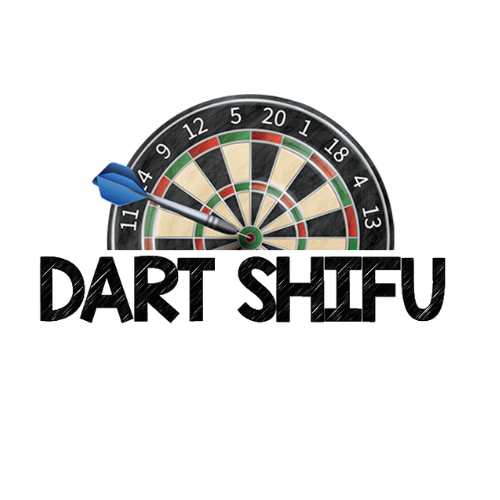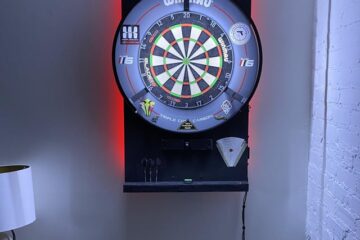Yes, darts players are generally good at maths due to the mental arithmetic involved in calculating scores during gameplay. This is because players need to quickly add and subtract numbers to maximize their scores.
Darts players often possess strong mathematical skills, as the game requires mental calculation and strategic thinking. The precision and accuracy needed to hit specific targets on the dartboard also demonstrate the players’ mathematical abilities. Additionally, they must calculate their current score and determine the best strategy for achieving a winning total.
As a result, many darts players excel in mathematics and are adept at mental calculation, making the game a unique blend of physical and mental prowess. Indeed, the mathematical aspect of darts reinforces the importance of precision and cognitive agility in the sport.
The Skills Of A Darts Player
Darts players hone their math skills during games, calculating scores with precision. The game requires mental agility, strategic thinking, and quick calculations, highlighting the players’ math prowess. Their ability to quickly calculate scores and devise winning strategies shows their strong mathematical acumen.
Hand-eye Coordination
Darts is a game that heavily relies on hand-eye coordination. A skilled darts player needs to carefully aim and throw the dart to hit the desired target on the dartboard. Their precision and accuracy in hitting the specific segments of the board showcase their exceptional hand-eye coordination abilities.
Mental Arithmetic
Mental arithmetic is crucial in darts as players need to calculate their scores and strategize their next moves swiftly. They have to deduct scores from their current total, think about the best combinations to finish the game, and make split-second decisions based on their calculations.
The Relationship Between Darts And Maths
The Relationship Between Darts and Maths is a fascinating intersection that may not be immediately apparent to most people. However, when delving deeper into the game of darts, it becomes evident that mathematical skills are crucial for success in this seemingly simple sport. From strategizing the best approach to the dartboard to analyzing statistics for better performance, the connection between darts and maths runs deeper than meets the eye.
Strategy And Calculations
Strategizing in darts involves complex calculations that can significantly impact a player’s success. When aiming for specific targets on the dartboard, darts players need to calculate the optimal angle and force required to hit the target. Players carefully assess the remaining score and plan their next moves to maximize their chances of winning. This strategic approach requires strong mathematical skills and quick mental calculations, making darts a game that demands more mathematical acumen than commonly perceived.
Statistical Analysis
Statistical analysis is a fundamental aspect of honing darts skills. Players meticulously track their performance, including dart accuracy, points scored, and the success rate of various strategies. By analyzing this statistical data, players can identify their strengths and weaknesses, allowing them to refine their techniques and improve their overall gameplay. Utilizing statistical tools and methods to gauge performance and make calculated adjustments is a defining trait of successful darts players, demonstrating the intimate relationship between darts and mathematical analysis.
The Cognitive Benefits For Darts Players
Darts is often viewed as a game of skill and precision, but its cognitive benefits extend beyond the dartboard. In fact, darts players are known to excel in analytical thinking and decision-making, which are crucial skills in mathematics and other fields. Let’s delve into the specific cognitive advantages that darts players can gain from their game.
Analytical Thinking
One of the key cognitive benefits for darts players is the enhancement of analytical thinking. When a player steps up to the oche, they must quickly calculate the best combination of numbers to reach the target score. This requires rapid mental arithmetic and strategic analysis, strengthening their ability to assess and solve complex problems in real-time.
Decision Making
Another cognitive advantage darts players gain is improved decision-making skills. With each throw, players must make split-second decisions on which area of the dartboard to target and which dart to use, considering factors such as the remaining score and the position of their opponents. This constant decision-making process hones their ability to evaluate options under pressure and make effective choices.
Training And Development
When it comes to the training and development of darts players, mathematics plays a crucial role. The mental arithmetic involved in dart games requires quick calculations and strategic thinking, making it essential for darts players to be proficient in math. Let’s delve into the ways in which training and development in mathematics contribute to the success of darts players.
Math-based Drills
Math-based drills are integral to honing the skills of darts players. These drills involve exercises that improve players’ numerical agility and ability to quickly analyze and process mathematical information. Through regular practice of these drills, players enhance their mental calculation speed and develop a keen sense of spatial reasoning, which are essential for accurately aiming at the dartboard.
Coaching And Mentoring
Effective coaching and mentoring programs are designed to not only enhance players’ dart-throwing techniques but also to improve their mathematical capabilities. Coaches and mentors often incorporate mathematical concepts into training sessions, such as probability calculations for optimal dart placement and statistical analysis to strategize game plans. This approach ensures that players not only refine their physical skills but also cultivate a deep understanding of the mathematical aspects of the game.
The Perception And Reality
The Perception and Reality
The perception that darts players are good at math has been a popular stereotype for years. The idea that dart players possess exceptional mathematical abilities has been perpetuated by certain media portrayals and pop culture references. However, the reality of this assumption is not quite as straightforward. Scientific studies have delved into the cognitive abilities of darts players, shedding light on the connection between the game and mathematical skills.
Media Portrayal
Media portrayals have often depicted darts players as possessing a natural aptitude for math due to their ability to calculate and strategize on the spot. This perpetuation of the stereotype has led to the widespread belief that being skilled at darts equates to being proficient in mathematics. Popular references in movies and television shows have further contributed to cementing this perception in the public consciousness.
Scientific Studies
Scientific studies have sought to determine whether the perceived link between darts and mathematical ability holds true in reality. Research in this area has indicated that while darts players do demonstrate high levels of skill in certain cognitive functions related to spatial awareness and strategizing, their overall performance in formal mathematical assessments does not significantly differ from that of the general population. In essence, darts players may excel in specific areas of cognitive function, but this does not necessarily translate to a universally advanced mathematical aptitude.

Credit: www.stuff.co.nz
Frequently Asked Questions Of Are Darts Players Good At Maths
Are Darts Players Good At Mental Math Skills?
Yes, darts players frequently use mental math to calculate scores and strategize their gameplay. The fast-paced nature of the game demands quick calculations, honing their mental math abilities.
How Does Playing Darts Improve Mathematical Abilities?
Playing darts helps in developing mathematical abilities. It involves continuous addition, subtraction, and strategic thinking as players aim to reach targeted scores, ultimately enhancing their math skills and cognitive abilities.
What Mathematical Concepts Are Utilized In Darts?
Darts involve arithmetic, geometry, and statistics. Players must calculate scores, aim at specific targets, and analyze data to devise winning strategies, making it a mathematically stimulating game.
Can Darts Enhance Problem-solving Skills?
Yes, darts require players to analyze situations, make quick calculations, and adapt their strategies. It fosters problem-solving skills by compelling individuals to think critically and make decisions under pressure.
Conclusion
To sum up, darts players often demonstrate a high level of mathematical skill when calculating scores during games. This ability to quickly calculate and strategize is a result of their consistent practice and training. The correlation between dart playing and math proficiency highlights the cognitive and analytical skills developed in this popular pub game.


